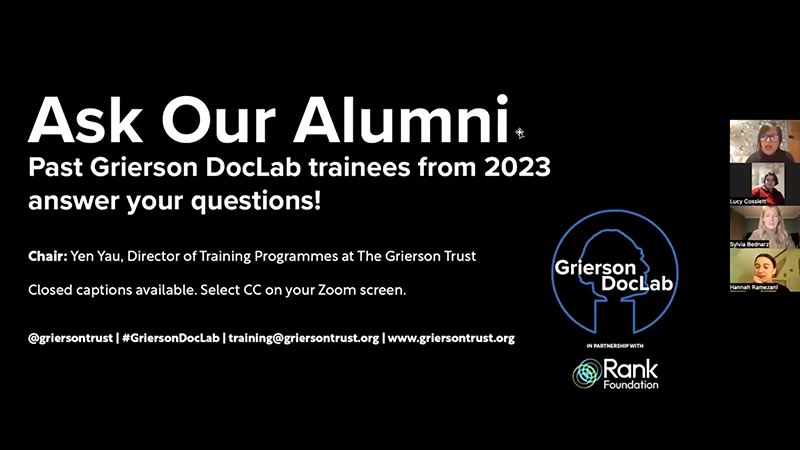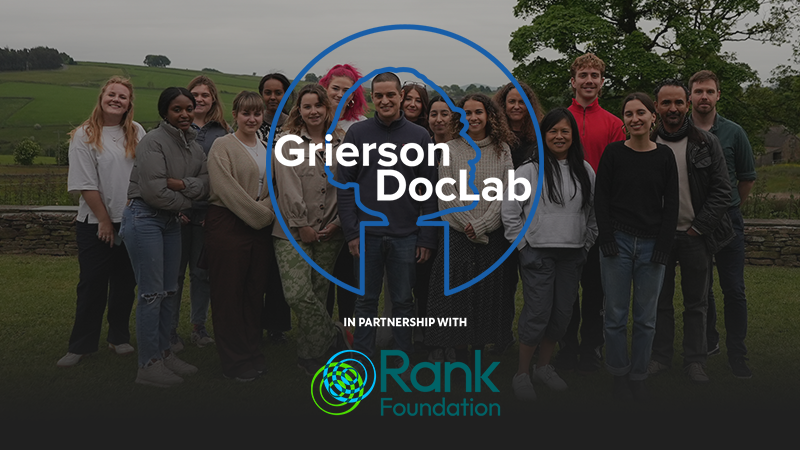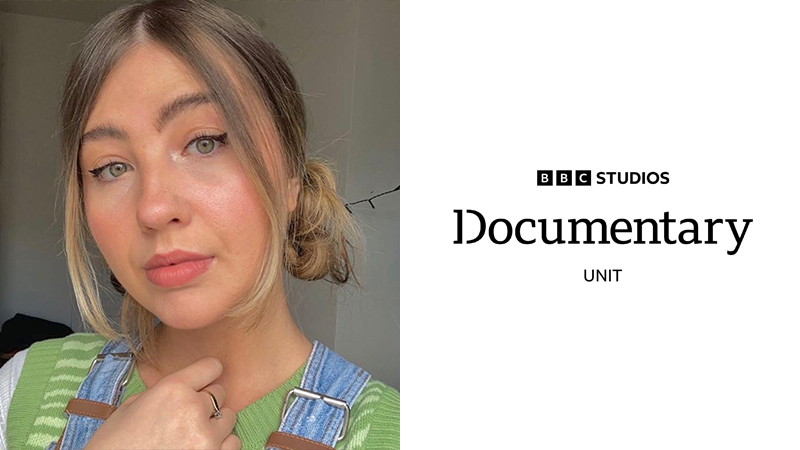January 24, 2024
Our Alumni answer your Grierson DocLab questions
The recording of the Ask Our Alumni 2024 webinar is now available to watch back! For any of the questions we didn't quite have time to cover during the session, we've written answers below...

The Ask Our Alumni webinar took place on Tuesday 23 January 2024 with Yen Yau the Director of Training Programmes and three 2023 alumni.
Ask Our Alumni Webinar
Our Director of Training Programmes, Yen Yau, along with four trainees from 2023: Lucy, Hannah and Lucas, talk about the Grierson DocLab core programme and answer questions from webinar attendees.
What makes an application stand out to you?
- It seems obvious, but a strong applicant is someone who has read the questions, answered with great thought and used the word count to their advantage. We also want to see your taste in documentaries, your point of view and your passion for the factual TV genre in your application.
If you have a specific taste in documentaries, like History, does that limit your chances of selection?
- No, you get a chance to explain and describe what you like to watch/feel passionate about in the application. It is important to watch and have an opinion on a wide variety of shows, but having a preference is not a bad thing.
Is there opportunity on the scheme to develop and work towards pitching your own ideas?
- Yes, as we describe in the guidelines/application, we ask you to come up with an idea you could develop over the training programme. However, this is an exercise to help your learning and confidence. There is not a practical, hands-on filmmaking element to the training. If you are interested in developing independent films and learning the craft of filmmaking, this is not the focus of the scheme – we support new entrants into behind-the-scenes roles working at production companies that make programmes for broadcasters and streamers.
If you have been to university and had a range of production runner positions, does that limit your chances on the scheme in terms of experience?
- No, anything you have done as part of your course, or at university in an extra-curricular capacity, does not count towards the three months’ experience limit for being eligible for the training programme.
What can be expected from the interview process?
- We want to make the interview conversational and hope to create a relaxed atmosphere, as much as is possible when interviewing online. It is no different from any interview you would have in person. We usually have a three-person panel drawn from industry and a member of the Grierson Trust team.
When there are very little opportunities coming through after the scheme, how do you keep momentum coming?
- If you get onto the training programme, we will share opportunities we receive directly from industry contacts. We advise that you reach out to everyone you have met on the scheme, use the network you are already plugged into as part of your cohort, encourage you to apply for relevant ScreenSkills courses, prompt your to think about developing soft skills, and you may also be matched with your mentor early on so you would be able to seek advice from them. These are just a few examples of how we can support you to keep the momentum going.
I’m 27 years old, can I apply for this scheme?
- I’m afraid not, this is for those aged 18-25.
Roughly how many documentaries would you recommend we discuss in Q1 of the application? Depth or breadth?
- There is no prescribed number, you just need to ensure that you keep to the word/character count. But do note that we definitely need more than one example, and it is a good idea to discuss those you like and those you do not like.
Can people with zero industry experience apply in this scheme?
- Yes, no experience is necessary to apply. If you have more than three months’ experience in the documentary or factual TV industry, this makes you ineligible.
When does the scheme start?
- You can find the schedule on the Grierson DocLab page of our website.
Are the placements full-time? I assume most people will be working alongside the scheme through the residential etc, so I'm just curious if people usually quit their jobs for the placements and then hope something more permanent comes through thanks to the networking done during the programme.
- Yes, the placements are full time. For those who are taking time out of jobs to participate on the training programme, they either leave their jobs to take up the placement or they use annual or unpaid leave. Trainees typically are recent graduates, or college leavers, are a freelancer or they have a job that is a zero-hour contract and therefore have the flexibility to fit the placement around their availability. Placements are matched for successful trainees on a case-by-case basis, so your availability and that of the production company are all taken into consideration in the matching process.


